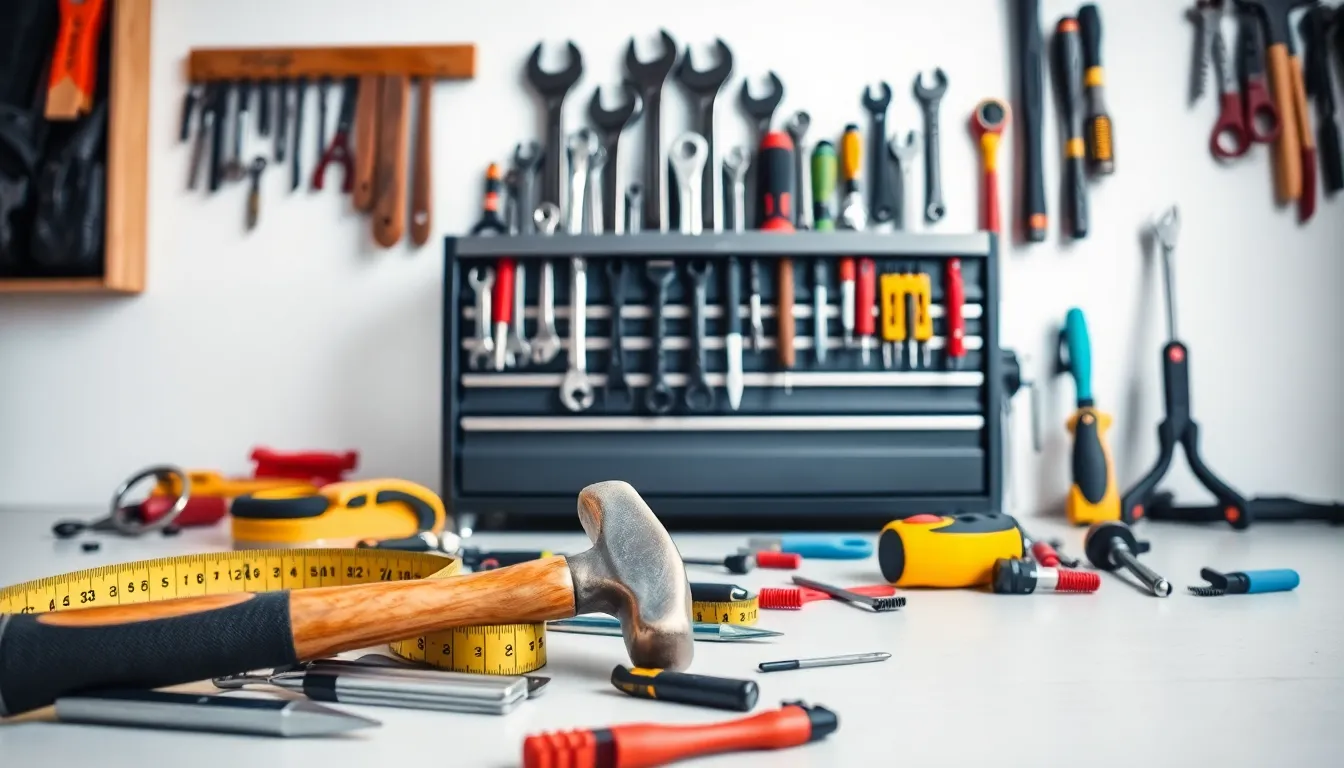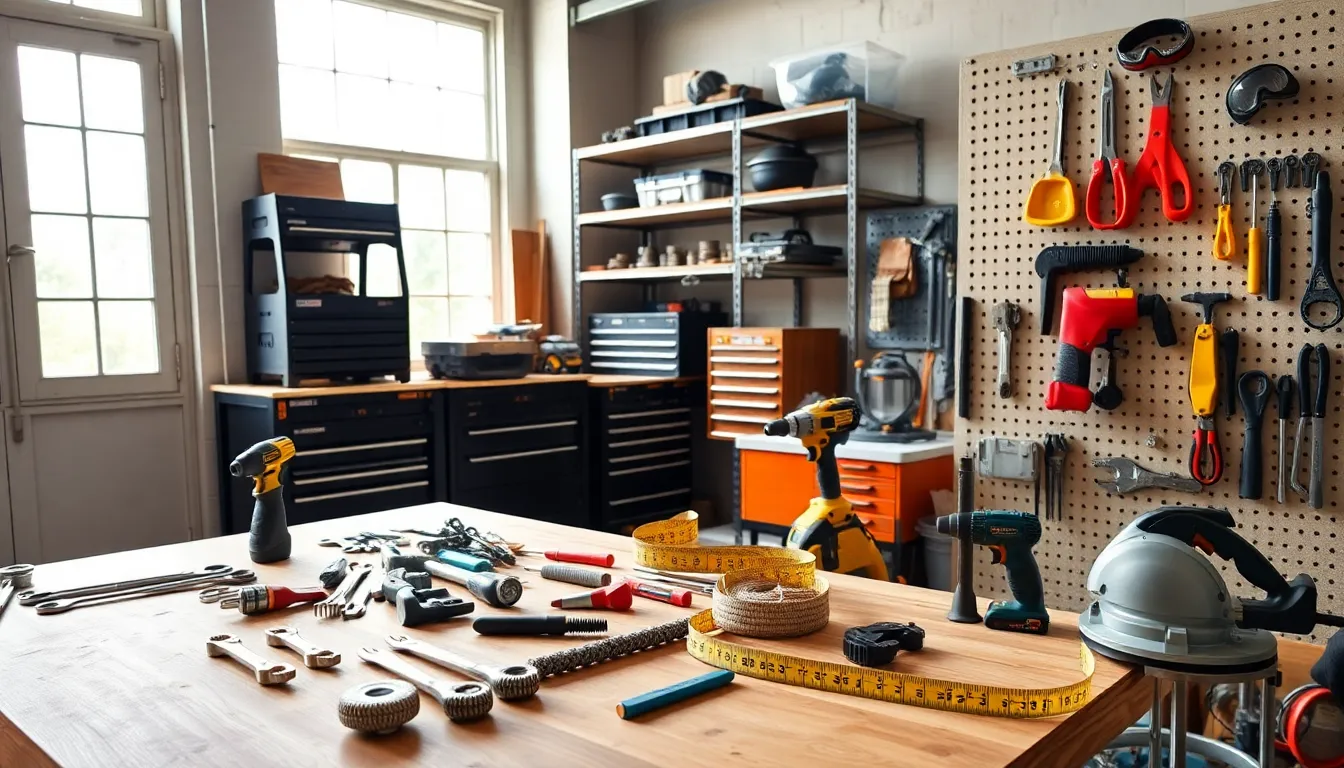When it comes to tackling projects around the house or diving into that crafty hobby, having the right tools at your fingertips can truly make the difference between a masterpiece and a messy disaster. Imagine trying to assemble a complex piece of furniture without even a screwdriver, it’s a bit like trying to bake a cake without flour. Enthusiasts and professionals alike know that selecting quality workshop tools and equipment is no laughing matter: it’s practically an art form. So, let’s gear up and explore the must-have essentials that make every workshop a functional wonderland.
Table of Contents
ToggleEssential Hand Tools For Every Workshop

Every workshop needs a solid foundation of hand tools. Unlike their power-hungry cousins, hand tools offer precision and control that can be invaluable for intricate tasks. A few of the indispensable hand tools include:
- Wrenches: From sizes that fit the tiniest bolts to those hefty enough for major projects, wrenches are versatile, reliable, and a must-have.
- Screwdrivers: Flathead and Phillips must sit front and center. They’re the superheroes of fasteners.
- Hammers: Not just for banging things, hammers are crucial for driving nails and assembling structures. The right weight can change the efficiency of your project.
- Measuring Tape: You can’t cut it if you can’t measure it, right? Having a durable, retractable measuring tape is key to ensuring every piece fits perfectly.
- Utility Knives: Ideal for careful cutting and trimming, utility knives are often overlooked but crucial.
These tools form the backbone of any workshop and allow users to perform a variety of tasks with ease.
Power Tools That Enhance Efficiency
Power tools are game-changers in any workspace, allowing for tasks that would take hours by hand to be completed in mere minutes. From drilling to cutting, these tools elevate any workshop. Here are a few standout power tools:
- Drills: An electric drill can bore holes, drive screws, and even be adapted for sanding. A must-have in any workshop.
- Circular Saws: Perfect for cutting lumber or plywood, ensuring straight and clean lines.
- Jigsaws: These versatile tools allow for intricate curves and designs, opening up creative possibilities.
- Sanders: Whether it’s an orbital sander for smoothing out surfaces or a belt sander for more heavy-duty work, having both can significantly speed up finishing work.
While power tools require some learning, they reward users with efficiency and precision.
Safety Equipment To Protect Workshop Users
Safety should be at the forefront of any workshop setup. No tool, no matter how great, is worth risking health or safety. Essential safety equipment includes:
- Safety Goggles: Protecting the eyes from flying debris is paramount. Always wear them while using power tools.
- Ear Protection: Power tools can produce sound levels that damage hearing over time. Invest in quality ear protection.
- Dust Masks: From sanding to cutting, a dust mask keeps harmful particles out of the airways, ensuring clean breathing.
- Gloves: These keep hands safe from cuts and abrasions while providing a better grip on tools.
Remember, a safe user is an efficient user. Equip the workshop with the right safety gear.
Storage Solutions For Organizing Tools
No one enjoys a cluttered workspace, especially when searching for that elusive screwdriver amongst a sea of tools. Effective storage solutions not only keep a workshop organized but can save time and reduce frustration:
- Toolboxes: A sturdy toolbox can easily hold essential hand tools and be portable.
- Drawer Systems: Convert a dull workbench into a stylish, functional storage unit that keeps everything in its place.
- Pegboards: Hanging tools on a pegboard not only saves space but also makes it easy to see what’s needed at a glance.
- Shelving Units: Shelves provide room for larger equipment and keeps it off the floor.
A well-organized workshop fosters creativity. When everything has a home, projects can flow smoothly.
Choosing The Right Tools For Your Projects
Picking the appropriate tools for specific projects can feel daunting. Here are a few tips to guide decisions:
- Assess Project Requirements: Each project varies in complexity. Identifying required tools early can save headaches later.
- Research: Scour both in-person and online resources for tool recommendations. Certain projects may benefit from specialized tools.
- Consult Experienced Users: Join forums or local groups where enthusiasts can share experiences and suggest tools.
Choosing the right tools doesn’t just make a project easier: it can elevate the final product tremendously.
Maintenance Of Tools And Equipment
Even the best tools can falter if they aren’t taken care of. Regular maintenance keeps them in optimal condition and extends their lifespan:
- Cleaning: Tools should be cleaned after every use, particularly power tools, to prevent rust and residual build-up.
- Sharpening Blades: Dull blades slow down work and can lead to mistakes. Keep blades sharp for efficient cuts.
- Regular Inspections: Check tools for any wear and tear. Early detection can save money in the long run by preventing costly repairs.
Treating tools with care cultivates creativity and ensures every project runs smoothly.



